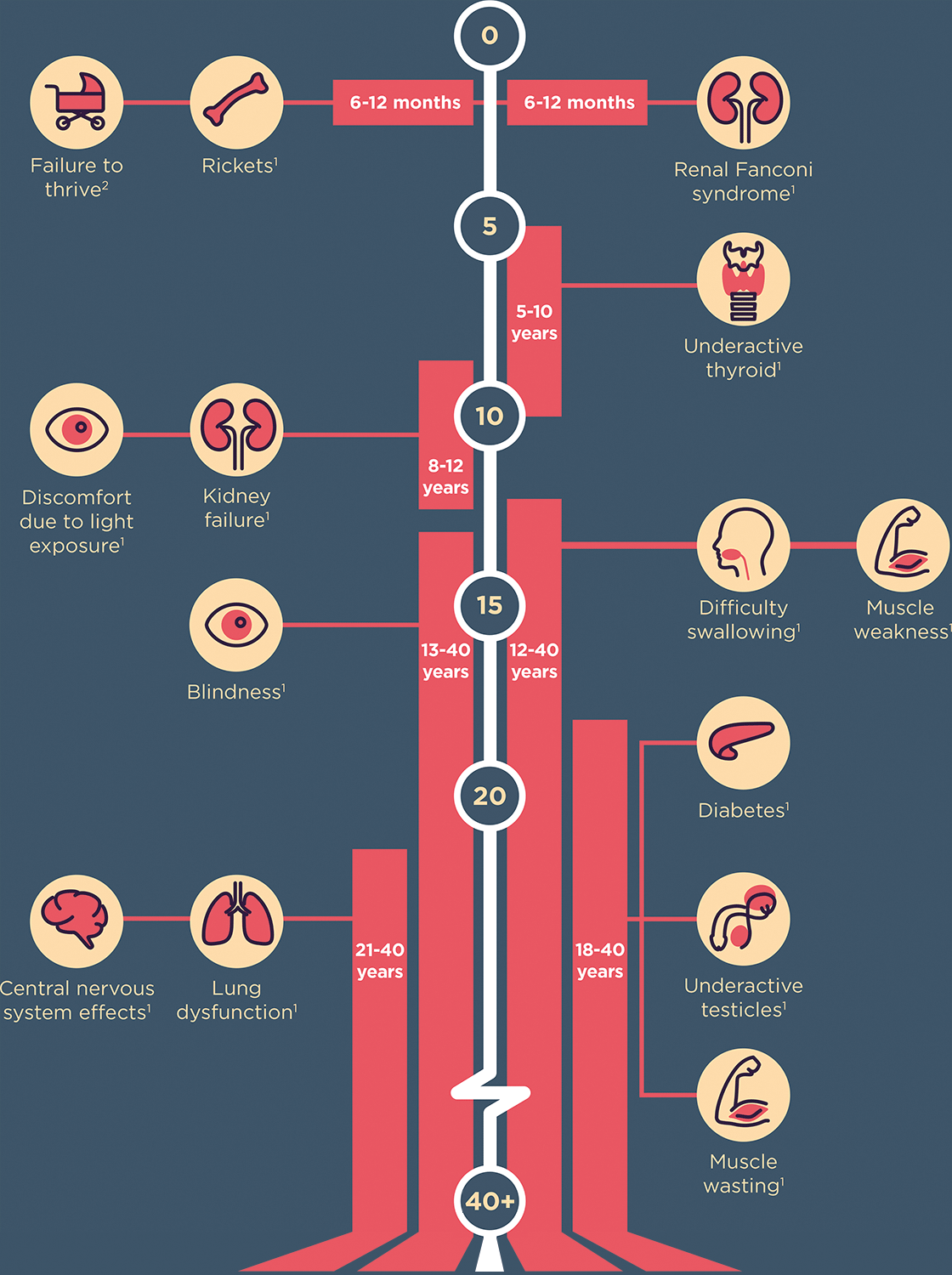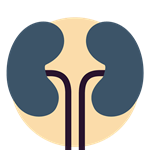
Symptoms
How does nephropathic cystinosis affect the body?
Because nephropathic cystinosis affects every cell in the body, its symptoms are very broad and diverse. Although the kidneys are affected first, almost every organ in the body is at risk of damage.1,2
Patients with nephropathic cystinosis appear normal at birth, but within the first months of life they often present signs that suggest their kidneys are not working as well as they should. Patients may also have impaired growth, loss of appetite or rickets.1,2
Eyes1
Sensitivity to light
(photophobia)
childhood and
adulthood
Blindness
adulthood

Thyroid1
Poorly working thyroid
(hypothyroidism)
childhood and
adulthood
Pancreas1
Diabetes
childhood and
adulthood
Kidneys1
Fanconi syndrome
infancy, childhood
and adulthood
Kidney failure
childhood and
adulthood
Muscles1
Muscle weakness and
decreased muscle mass
(myopathy)
childhood and
adulthood

Brain2
Visual or
learning issues
childhood and
adulthood
Throat1
Trouble swallowing
childhood and
adulthood
Lungs1
Problems breathing
adulthood
Male
reproductive
organs*1
Not being able
to father children
naturally (infertility)
adulthood
Bones1
Softening or
weakening of
bones (rickets)
infancy, childhood
and adulthood
*Cystinosis has not been shown to cause infertility in women. If you are planning on becoming pregnant, currently pregnant, or breastfeeding, talk with your doctors about which treatments might be right for you.1,2
What is renal Fanconi syndrome?
Renal Fanconi syndrome is one of the first signs of cystinosis, appearing between the age of 6 and 12 months. This name is given to a collection of symptoms that suggest the kidneys are not working as they should. These symptoms include:1,2
– Excessive urine production (polyuria)
– Excessive thirst (polydipsia)
– Dehydration
– Loss of electrolytes in urine
– Rickets
– Impaired growth
How does nephropathic cystinosis change over time?
As people with nephropathic cystinosis get older, the accumulation of cystine in all cells leads to a range of possible symptoms that affect different parts of the body.1
Progression of disease over time
Continuous, lifelong cystine accumulation potentially damages all organs and tissues, resulting in severe complications.1,2
Timeline shows age of onset of complications in patients not receiving therapy

Figure adapted from Levtchenko E, et al. 20221 and Bäumner S, et al, 2018.2
Timeline shows age of onset of complications in patients not receiving therapy

Figure adapted from Levtchenko E, et al. 20221 and Bäumner S, et al, 2018.2





